
Derek Bailey was an English avant-garde guitarist and an important figure in the free improvisation movement. Bailey abandoned conventional performance techniques found in jazz, exploring atonality, noise, and whatever unusual sounds he could produce with the guitar. Much of his work was released on his own label Incus Records. In addition to solo work, Bailey collaborated frequently with other musicians and recorded with collectives such as Spontaneous Music Ensemble and Company.

Evan Shaw Parker is a British tenor and soprano saxophone player who plays free improvisation.
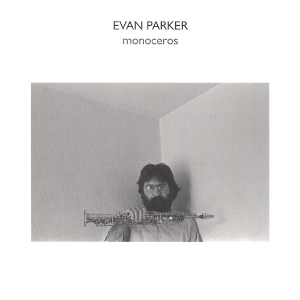
Monoceros is an album of solo soprano saxophone improvisations by British jazz saxophonist Evan Parker. It was recorded directly to disk using the direct-cut technique, with assistance from Numar Lubin, Gerald Reynolds and Michael Reynolds of Nimbus Records. It was initially released on Parker and Derek Bailey's Incus Records label in 1978, and was reissued by Chronoscope (1999), Psi (2015), and Treader (2020).

The Snake Decides is a studio album by British jazz saxophonist Evan Parker. It was released in 1988 on Parker and Derek Bailey's Incus Records label, re-released on Parker's Psi label in 2003, and reissued again in remastered form with new liner notes by Brian Morton on the Otoroku label in 2018.

Barry John Guy is an English composer and double bass player. His range of interests encompasses early music, contemporary composition, jazz and improvisation, and he has worked with a wide variety of orchestras in the UK and Europe. He studied at the Guildhall School of Music under Buxton Orr, and later taught there.

Paul William Rutherford was an English free improvising trombonist.

For Alto is a jazz double-LP by composer/multi-reedist Anthony Braxton, recorded in 1969 and released on Delmark Records in 1971. Braxton performs the pieces on this album entirely on alto saxophone, with no additional musicians, instrumentation or overdubbing. Although other jazz musicians, such as Coleman Hawkins, Sonny Rollins, and Eric Dolphy, had recorded unaccompanied saxophone solos, For Alto was the first jazz album composed solely of solo saxophone music.
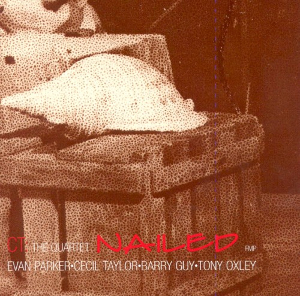
Nailed is a live album by Cecil Taylor, Evan Parker, Barry Guy and Tony Oxley recorded on September 26, 1990 at the Bechstein Concert Hall in Berlin and released on the FMP label.

The Hearth is a live album featuring a performance by Cecil Taylor with Tristan Honsinger and Evan Parker recorded in Berlin on June 30, 1988, as part of month-long series of concerts by Taylor and released on the FMP label.
The genre of solo saxophone has a rich, but largely unmapped history in contemporary music, particularly jazz. Many, but not all, musicians who play and record solo saxophone use extended techniques, a vocabulary of the saxophone beyond its normal range. Notable musicians in this field include Kaoru Abe, Anthony Braxton, Peter Brötzmann, John Butcher, Don Dietrich, Eric Dolphy, Brandon Evans, Paul Flaherty, Mats Gustafsson, Coleman Hawkins, Lee Konitz, Steve Lacy, Roscoe Mitchell, Evan Parker, Sonny Rollins, Sam Newsome, Ned Rothenberg, Masayoshi Urabe, Ken Vandermark, Colin Stetson, Jonah Parzen-Johnson and Andre Vida, Gianni Gebbia.
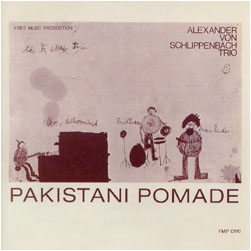
Pakistani Pomade is an album by German free jazz pianist Alexander von Schlippenbach's Trio, featuring saxophonist Evan Parker and percussionist Paul Lovens, recorded in Germany in 1972 for the FMP label.
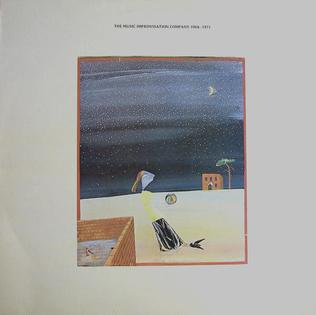
The Music Improvisation Company 1968–1971 is an album by The Music Improvisation Company recorded over 1968 and 1970 and released on the Incus label in 1976. The quartet features saxophonist Evan Parker, guitarist Derek Bailey, Hugh Davies on various self-made electronic instruments, and percussionist Jamie Muir.

Three Blokes is a live album by saxophonists Lol Coxhill, Steve Lacy and Evan Parker recorded in Berlin in 1992 and first released on the FMP label in 1994.

Atlanta is a live album by saxophonist Evan Parker. It was recorded in December 1986 in Atlanta, Georgia, and was released by Impetus Records in 1990. On the album, Parker is joined by bassist Barry Guy and drummer Paul Lytton.

Collective Calls (Urban) , subtitled "an improvised urban psychodrama in eight parts", is an album by saxophonist Evan Parker and drummer Paul Lytton. It was recorded in April 1972 at the Standard Essence Co, a small loft space in London, and was released later that year by Incus Records. The album was reissued on CD by Psi Records in 2002.

At the Unity Theatre is a live album by saxophonist Evan Parker and drummer Paul Lytton. It was recorded in January 1975 at the Unity Theatre in London, and was released later that year by Incus Records. The album was reissued on CD, with three extra tracks, by Psi Records in 2003.
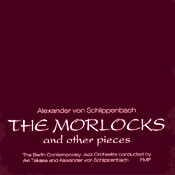
The Morlocks and Other Pieces is an album by Alexander von Schlippenbach and the Berlin Contemporary Jazz Orchestra. It was recorded in July 1993 at RIAS Studio 10 in Berlin, and was released in 1994 by FMP. It features six compositions by Schlippenbach with dates ranging from 1983 to 1993.

Six of One is a live solo soprano saxophone album by Evan Parker. It was recorded on June 18, 1980, at St Jude-on-the-Hill in London, and was initially released on vinyl in 1982 by Incus Records. In 2002, it was reissued on CD by Parker's Psi label with an additional track from the same session, and in 2021, it was reissued on vinyl in remastered form but with the original six track format by Cafe Oto's Otoroku label.

Lines Burnt in Light is a live solo soprano saxophone album by Evan Parker. It was recorded on October 11, 2001, at St Michael and All Angels Church, Chiswick, London, and was issued on CD later that year by Psi Records as the label's inaugural release. Track one was recorded prior to the audience's arrival, while the remaining two tracks were recorded in concert. The album is dedicated to the memory of recording engineer Michael Gerzon, and cover art was provided by Roger Ackling.

The London Concert is a live album by guitarist Derek Bailey and saxophonist Evan Parker. It was recorded on February 14, 1975, at Wigmore Hall in London, and was initially released on vinyl later that year by Incus Records. In 2005, it was reissued on CD by Parker's Psi label with additional tracks, and in 2018, it was reissued on vinyl in remastered form but with the original four track format by Cafe Oto's Otoroku label.



















